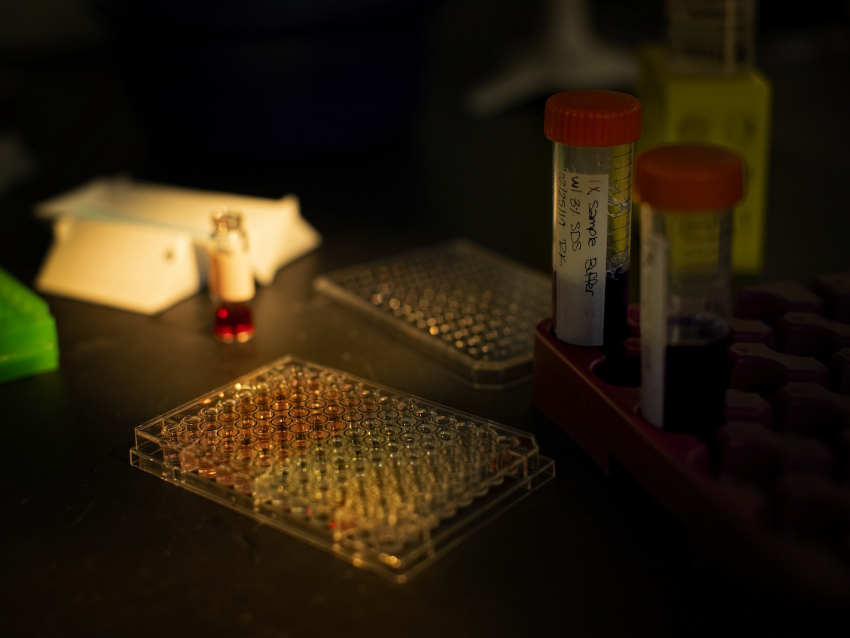
Monthly Research Publication Highlight details the discovery of new enzyme inhibitors that may be useful in the future treatment of tuberculosis.
The UK College of Pharmacy Research Publication Highlight for October, 2016 was published in the ACS Chemical Biology and is titled “Discovery of Allosteric and Selective Inhibitors of Inorganic Pyrophosphatase from Mycobacterium tuberculosis”.
The collaborative project was conducted in the laboratories of Dr. Oleg Tsodikov and Dr. Sylvie Garneau-Tsodikova in the UK College of Pharmacy’s Department of Pharmaceutical Sciences. Postdoctoral scholars Allan Pang and Atefeh Garzan co-led the study. Martha Larsen and Thomas McQuade from the High-Throughput Screening Laboratory in the Center for Chemical Genomics at the University of Michigan also contributed to the project.
All organisms contain inorganic pyrophosphatases (PPiases), enzymes that are essential in numerous biochemical pathways, including those needed for growth and virulence of Mycobacterium tuberculosis, the pathogenic bacterium that causes tuberculosis (TB). A high-throughput screen identified a molecule capable of inhibiting PPiase from Escherichia coli, a common laboratory bacterium. Subsequently generated chemical analogues of this compound were active towards PPiase from M. tuberculosis and less active against the similar enzymes from other bacteria, indicating that the molecules were selective and may have therapeutic potential. Co-crystallization of the compound with the M. tuberculosis PPiase revealed an unusual interaction between the inhibitor and its target in which pairs of the compound “lock” the enzyme when it is bound to its substrate. Importantly, this part of the enzyme does not exist in PPiases from eukaryotic cells, suggesting that these inhibitors may be safe to use in humans. The team synthesized several analogues of the lead compound, which showed improved activity and selectivity. Beyond these potentially exciting molecules, the investigators identified a novel strategy that targets this portion of PPiase from M. tuberculosis for the development of drugs in the treatment of TB.
